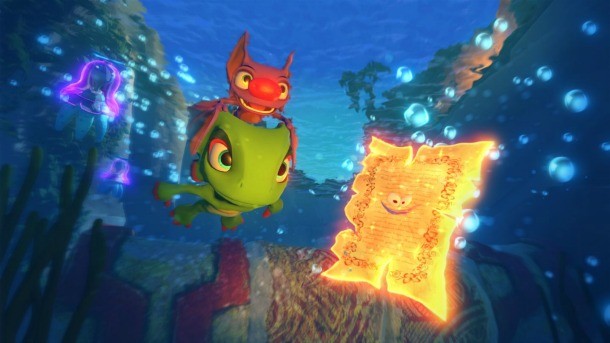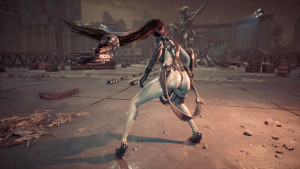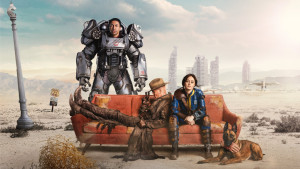Please support Game Informer. Print magazine subscriptions are less than $2 per issue
Afterwords – Yooka-Laylee

Yooka-Laylee was developed by a group of industry veterans with decades of experience creating platformers on consoles like SNES and Nintendo 64. With games like Donkey Kong Country and Banjo-Kazooie on the developers' résumés, fans had high expectations when the new studio started a Kickstarter campaign for a project promising to revisit the glory days of the 3D platformer genre.
After a successful Kickstarter campaign and a lengthy development cycle, Yooka-Laylee launched to polarizing results. While some praised it for its humor as well as its adherence to the classic 3D platformer formula, others felt it didn't modernize enough in the nearly two decades since the release of Banjo-Kazooie on N64. As a result, the Metacritic score ranges from 69 to 74 depending on the platform, with individual scores reaching as high as 100 and as low as 20.
We caught up with Andy Robinson, writer and communications director at Playtonic Games, to ask how the team felt about the game's reception, and what he learned from the experience.
Game Informer: Looking at the final product of Yooka-Laylee, how do you feel about what you set out to accomplish versus what you did accomplish?
Andy Robinson: The team is really proud of what we've accomplished in such a short amount of time with a tiny (but experienced) team, especially considering we had to build a company at the same time! Not long ago we sat in a tiny office the size of a gent's toilet, and now we have an incredible group of creators and our debut game on the shelves – made possible 100 percent thanks to our Kickstarter budget.
Yooka-Laylee is the type of game that we wanted to make and it's gratifying to see the positive response from Kickstarter backers. Thanks to them we're now in a really strong position to make even better games that appeal to them in the future (which of course means lots of colors and fart noises).
What has the feedback looked like from your end?
It seems to confirm that we delivered what we promised to our fans and backers. It's difficult to please everybody all the time of course, but the comments we've seen – good and bad, and there were a lot of really positive reviews – suggest that fans of golden age 3D platformers will enjoy Yooka-Laylee a lot. Of course, we take all constructive criticism on board, which is why we've already released a patch to further improve things like performance and polish, and we're continuing to do that behind the scenes.
Did you expect it to be as critically divisive as it was? Why do you think it ended up like that?
We did – but perhaps not quite as broad as it ended up! We set out to make a '90s- inspired platformer for fans who missed the experience those games offered; an open-world style of platforming where the adventure is just as important as the jumping about. We had a clear mandate for Yooka-Laylee via our Kickstarter and while that wasn't a blueprint that would necessarily appeal to everyone, it's pleasing to see so many people enjoying Yooka-Laylee as much as we did making it. It's been a big maiden success for us and we're excited for the future.
Many of your design decisions intentionally rely on retro conventions. Do you think you relied too heavily on any of them at times?
In hindsight, the camera is something we perhaps worked too hard on. We put too much effort into trying to assist the player, when the feedback we're now hearing is that players want to have full control over their viewpoint all of the time. We've already made some big improvements to this and players will see a lot more in the near future.
The core of Yooka-Laylee's design is about empowering players to make their own decisions in how they play the game, and you'll see a lot more of that in our upcoming updates, whether it's in camera control, dialogue skipping, or controlling gibberish voices.

Yooka-Laylee doesn't hold players' hands, particularly when it comes to exploration. How do you feel about how you balanced that element of the game?
It's always very challenging to balance guiding players through the game, especially with modern game worlds looking so great and crying out for everything to be explored! Mini-maps and giant waypoint arrows are not something that fit the spirit of our game; we wanted players to explore the game world at their own pace with a real feeling of discovery. However, we've been listening to all the feedback and there are definitely some elements we can improve, specifically to how the hub world flows, and you'll see small changes there in an upcoming update (you like giant, googly-eyed chevrons, right?).
Do you think collectibles are still as viable as a game design convention today as they were when the games that inspired Yooka-Laylee were at their height?
Absolutely, we love 'collect-athon' games. But it's important that collectibles have a meaningful role in gameplay. We spent a lot of time ensuring that every collectible in Yooka-Laylee had a meaningful impact; quills to spend on moves, a power bar to remove the need for a dozen tedious move items, projectiles embedded in the game world as berry bushes rather than loads of ammo items etc...
The game is full of fun fourth-wall breaking lines. Were there any you liked that were left on the cutting room floor?
At one point Capital B had a whole series of taunts for the Icymetric Palace area, including one for the room with the endless scrolling walls which literally called out the area for, 'breaking the fourth wall... and the fifth, and six...'
There was also a something in Capital Cashino about the target game being the spiritual successor to the earlier target game but the NPC for that challenge ended up being cut.
Believe it or not, we did try and balance the amount of fourth-wall breaking dialogue, but it was such a lot of fun to write! Maybe we'll be more conservative in the future.
Prior to launch, you were open about the future of Yooka-Laylee and its universe. What successes do you want to carry forward? What should be left behind?
You're right that we always wanted to build a universe of characters and stories that will carry over into future adventures. We imagine you can also expect colorful worlds, amazing music, and our team's questionable brand of humor to form part of the Playtonic DNA. As for what we'll leave behind, you'll have to wait and see! But our intention from the start was to never constrain ourselves to one style of game.
What is the future of this series?
Class-based, free-to-play brawling, and microtransactions. Tell me right now you wouldn't buy a new hat for Trowzer.
You can see our review for Yooka-Laylee here.










